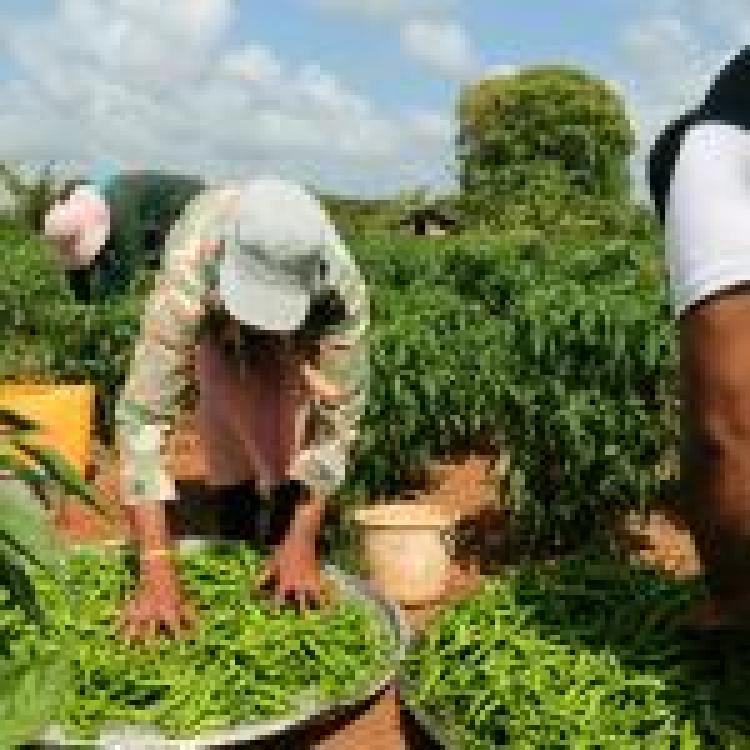
A Chinese company is seeking damages from the Sri Lankan government for failing to make payments for a shipment of organic fertiliser.
Qingdao Seawin Biotech Group Co. Ltd. wants $8 million as compensation from the National Plant Quarantine Service for losses and damages to its reputation or the agency faces legal action, according to a letter of demand seen by Bloomberg News.
The dispute stems from an alleged contaminated shipment of fertiliser being imported in which the Sri Lankan government refused to pay for. On September 17, Sri Lanka’s Minister of Agriculture confirmed for the first time that a microorganism identified as ‘Erwinia’ was discovered in samples brought to Sri Lanka from Qingdao Seawin Biotech Group Co.Ltd. The consignment was not allowed to unload in Sri Lanka, prompting state-run Ceylon Fertilizer Company Ltd to get a court order to halt the People’s Bank from making payment to Qingdao Seawin. It’s not clear if the contract’s terms allowed for the buyer to stop payment. This then led to the Chinese government blacklisting the People's Bank and the Chinese embassy in Sri Lanka disputing the validity of the test conducted by the National Plant Quarantine Service. The government decided to import 99,000 metric tonnes of organic fertilizer at a cost of USD $63 million from the Chinese company
Bloomberg reports that China’s Foreign Ministry said last week the Qingdao Seawin’s cargo of fertilizer had already passed third-party testing and the issue was being worked through. “China has always attached great importance to the quality of exports,” ministry spokesman Wang Wenbin said.
The Chinese embassy disputed the validity of tests conducted by the National Plant Quarantine Service in Sri Lanka, in a statement released last month. The statement noted that there was "no scientific basis" for Erwinia being found in the samples from the Qingdao Seawin Biotech Group.
The statement highlighted that the company is "world-renowned" and exports to more than 50 countries and that refusal of payment on the basis of contamination has caused "great financial loss to the company". The statement also noted that according to the International Plant Protection Convention it takes 6 days to identify the presence of the bacteria Erwinia, but the National Plant Quarantine Service in Sri Lanka claims to have detected the bacteria within just 3 days. Erwinia can lead to crop failure if allowed to fester.
Sri Lanka's ban on chemical fertilisers
Reporting on Sri Lanka's ban on chemical fertilisers, the Economist highlights the dire economic straits the country finds itself in with inflation near 6% and food prices rise more than 11%.
Whilst the Rajapaksa regime had initially planned to implement the transition to organic fertilisers over a ten year period, the announcement of a sudden total ban caught many farmers off guard.
Sri Lanka's Planter's Association predicts a massive fall in tea production and export revenue of around 25% across the next six months and thereafter nearly a half. Sri Lanka's economy is heavily dependent on tea, exporting $1.24 billion last year or 1.5% of its GDP. Sri Lanka stands as the world's fourth-largest tea exporter.
Over 90% of Sri Lankan farmers are reliant upon chemical fertilisers and as a result of the ban 85% expect crop losses in the coming season, Verite Research, a Colombo-based think tank reported.
Read more at Bloomberg


